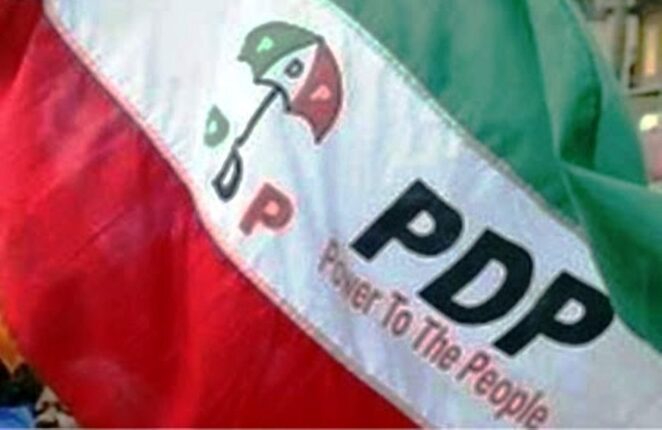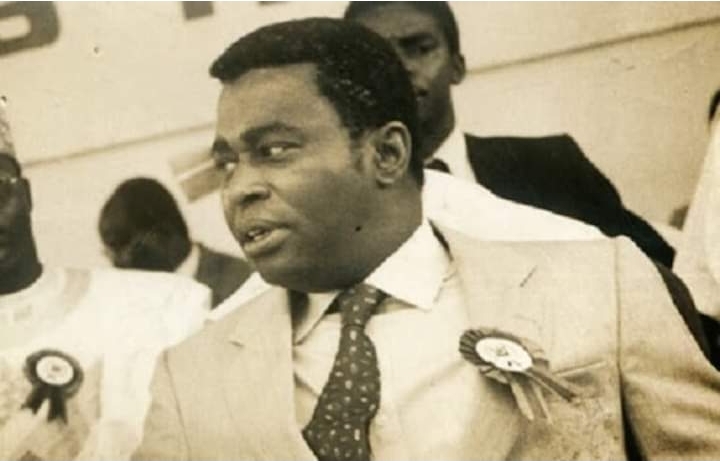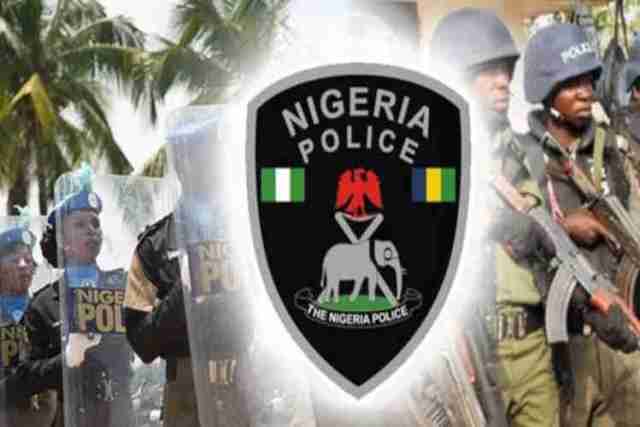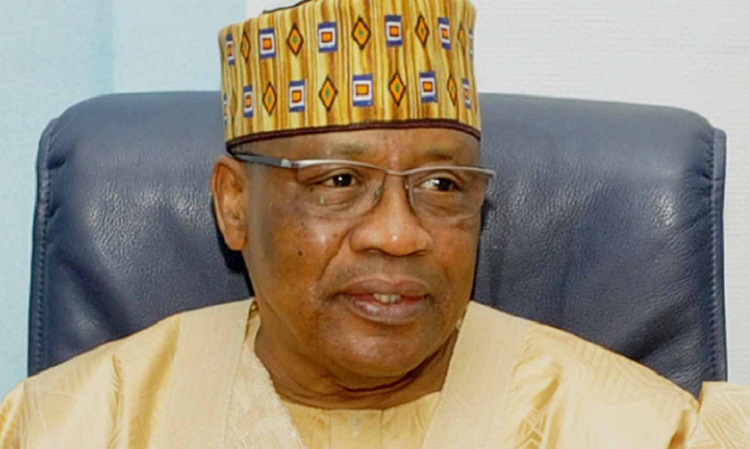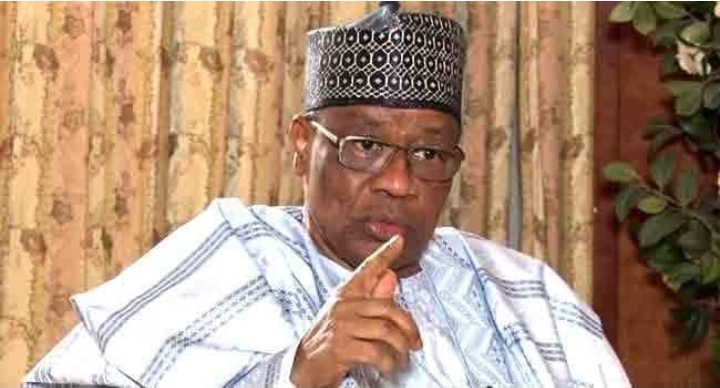By Chidi Amuta(Excerpts from an Unfinished Memoir)
Former military President Ibrahim Babangida turns 80 in a matter of days. That is a clear 28 years after he left office and returned to his Minna ancestral base. As he, his family and compatriots reflect on his trajectory through life so far and his service to Nigeria, Babangida is more likely to be engaged in reflections on his place in national history over and above the flourish of personal celebration.
For the man who many Nigerians prefer to call IBB, today is not a destination but a milestone in a personal journey. That journey is a long trek of fortitude in the face of daunting travails. It is a pilgrimage powered by unusual personal strength and resilience in the face of trials that test the will of heroes. The Babangida story is an epic in providence and the courage of one visionary individual who stepped forward and dared to make his vision of Nigeria ours as well.
Orphaned at 14 and raised in the benevolent surrogacy of a caring uncle, Ibrahim Badamasi Babangida grew up to make a career in a profession that embraces the certainty of death in the pursuit of the life of others. Soldiering is a profession where men and women are trained to race towards danger and death while others flee in the opposite direction.
Babangida prevailed in his dangerous chosen career and rose to the pinnacle of his profession as a manager of violence. From the crucible of uncertain fate, Babangida also rose to assume national leadership in a moment of desperate need.
With a calm resolve and stoic control forged in the furnace of war, the man came to bestride the Nigerian firmament for eight eventful years. His every step in power carried the imprint and surefootedness of a practiced player in the theatre of power. In the process of leading one of the world’s most engaging nations, Babangida faced up to the challenge of leadership with unusual courage, authentic creativity and admirable sagacity.
For a man who has always insisted on the ultimate verdict of history, Babangida led Nigeria from the front, courageously embarking on some of the most difficult and controversial reform measures in our national history so far. It is fair to say that unlike most other military leaders in our history, Babangida came to power with a detailed roadmap and precise compass. His essential vision was that of a different, futuristic and modern Nigeria.
He envisioned a free market economy, a stable liberal democratic polity and a fair society of free citizens in a republican state. Above all, he envisioned a diverse national community in which every citizen would be judged not by the language he spoke or the direction of his origin but by the content of their character and contribution to the commonwealth. It is a nation in which each citizen would have a fair shot at available opportunities for a better life.
In Babangida’s Nigeria, the strength of our diversity was explored and strengthened. Believing that our nation building was interrupted by the first military coup in 1966, Babangida combined aspects of nation building with the task of day-to- day governance. In the process, he came close to putting into practice Dr. Nnamdi Azikiwe’s concept of diarchy, a seamless combination of military rule and guided civilian democratic governance. Diarchy would transit into full democracy on the basis of a two party polity with clear options for democratic choice. This was the essence of the Babangida mission and its guiding vision.
He brought to this ambitious multiple mandate a personal charisma and style that were unique. In Babangida, Nigeria experienced for the first time the leader as a brand. He reigned and ruled simultaneously. His personal magnetism and the lure of his personal aura and electricity endeared him to most of the populace.
But the Nigerian public was not always unanimous in their embrace of him and his policies. In a sense, Babangida was the ultimate Machiavellian Prince, loved and hated in almost equal measure by those he came to rule. Power with charisma earned him committed devotees as well as powerful adversaries within the military and among the civilian political elite. Controversy and political crises were the fruits of the tension his mission and style generated.
However, despite loud reservations about some of his policies and defining politics, his appeal and pull have endured even after almost three decades out of office. That appeal has mostly overwhelmed Babangida’s many human pitfalls and flaws as a historical personage. He has remained a mythic personage, a deity with countless devotees but without a shrine. He is an object of political and social pilgrimage for both politicians and ordinary Nigerians across creed, region, and generation.
Whatever maybe the eventual verdict of history on the life and times of this man of many seasons, Babangida remains firm in his beliefs about Nigeria. For him, Nigerian is both an ideal and a lived reality. His belief in the unity and prospects of Nigeria remain unshaken. He wants it on record that when the nation called him to duty, he answered with the honest intent and firm resolve of a true patriot and nationalist.
Nothing in his life experience or his term of service has shaken his belief in the unity of Nigeria and the manifest destiny of our nation. For him, Nigeria has no other choice than to be great among nations. Till this moment, Babangida insists that true leadership can delegate authority but must always bear ultimate responsibility for actions taken under the leader’s watch.
But in the process of leading Nigeria through difficult times and treacherous choices, Babangida committed the errors to which his time and place in history entitled him. Because the differences he sought to make in our national progress were decisive in many positive ways, future generations of Nigerians are likely to look up from their history books to acknowledge one thing: IBB was here.
The fair-minded are likely to acknowledge Babangida’s essential empathy and humanism. IBB felt our pain, shared our hopes, fired our aspirations and envisioned a better place where we could all be proud to call home. But he also caused us concern at trying moments while navigating us away from the edges of the precipices of national history. As he often said of the Great Zik, the central issue in Nigeria’s days of military rule would likely remain Babangida and his rule.
It is in the nature of historic tragedy that Babangida stopped short of landing us safely at the promised political shore. Yet he took the economy to an irreversible market place, 30 years ahead of his time, Babangida took us into a two party polity that is now our reality. Admittedly, his contributions to our national journey come loaded with lessons and precedents from which our future can draw inspiration towards better outcomes. In Babangida therefore, history and tragedy meet and mix on the canvass of the Nigerian landscape.
No leader can ask for a greater place in the hall of national memory…
For over three decades, I have related with this great Nigerian and illustrious African statesman. Our paths crossed as friends with him in office, in power and back as an ordinary private citizen. I have seen him closely at work, in power, in crisis, at moments of difficult decisions and under the fire of intense public scrutiny and criticism.
I recall here in excerpts from my forthcoming memoirs –A Life in Pieces- bits and pieces of some of my lived moments in close proximity with this unusual and remarkable soldier, humanist, leader and friend.
I trekked nearly 1,000 kilometers to honour Babangida’s first summons. My journey to Dodan Barracks was a journey across frontiers of place, time and station. From my village beginnings in Umuguru to the epicenter of national power was indeed a long trek…
The President’s ADC, a smart and polite young military officer, ushered me into a dimly lit reception room and nicely apologized: “Oga will see you shortly”. An earlier visitor, General Sani Abacha, soon emerged from his brief meeting with the President to reclaim his short service staff from the ADC who had nicely taken it from him as a security measure before he went upstairs to see the President!…
While I was waiting anxiously to be ushered into his presence, my mind raced through my journey to this moment and place. The footpaths of Umuguru village nearly 1000 kilometers away… The flooded bush paths on my daily trek to the roofless village school…The cruel lashes of the arithmetic teacher’s cane for not memorizing the multiplication table and reciting same quickly enough on prompt… The endless wait at the roadside on empty stomach just to catch a glimpse of the fat new men of power rushing to replace the white men on the eve of independence… From the anonymity of my harsh beginnings to this moment of notice at the apex of power…Why?
The only offence I had committed to earn a summons to Dodan Barracks was a series of newspaper articles. One titled “Thesis on Liberia”, suggested that Nigeria should project its power in West Africa to save Liberia from the destruction of a civil war…There had been an earlier one titled: ”Ibrahim Gorbachev” in which I had drawn a parallel between the visionary reforms of Babangida and the wide reforms sweeping the former Soviet Union under Mikhail Gorbachev… It turns out that the President had read both and wanted to meet me…Once upon a time in this place, Presidents used to read and understand newspaper articles!…
It is 7am on a normal week day in Dodan Barracks. The fortress of power wakes up to its duality. This place is the source of political authority. It is also the command center of the nation’s military…It wears both caps with palpable unease….
The president’s morning briefing meeting with his personal staff takes off with precise punctuality. Ahead of everyone else, the president is already seated at the head of the conference table.. All those whose roles govern his daily life are here: Chief of Protocol, Press Secretary, Principal Secretary, Chief Security Officer, Principal Staff Officer, Military Intelligence Officer etc. are here …. Routine matters of schedule are quickly dispensed with. Then a quick review of the press and media. It turns out that ahead of these early morning meetings, the president has read all major front page stories and influential columnists. He has also listened to the BBC, Voice of America and CNN. Reuters and AFP are on most screens in and around his residence and office….
Someone draws his attention to a blistering article by General Obasanjo. Very critical of the government on the Structural Adjustment Programme and the need for government to don a more humane face. The anger around the table is palpable. Nail Obasanjo! Tame Obasanjo!! Contain this trouble maker!!! Babangida retains his calmness even in the wildest torment and torrent. People want him to assume a more hostile posture towards his critics, especially Obasanjo…
He proceeds instead to lecture us. Obasanjo was not only a professional boss but something of a personal mentor to him… When others opposed his membership of the Supreme Military Council under Murtala Muhammed on grounds of his young age, it was Obasanjo who weighed in and insisted on him…When he was admitted to go to Staff College, there was about to be a moratorium on officers going to Staff College abroad. Again Obasanjo insisted that an exception be made for him since his admission predated the establishment of the Nigerian Command and Staff college. He recalled a few other personal good turns by Obasanjo and concluded that without Obasanjo, he would not reach the present heights. All dissent was silenced….
At lunch in Abuja at the bungalow guest house provided by General Gado Nasko, then Minister of the Federal Capital Territory, Babangida and I were joined only by his ADC, then Colonel Nuhu Bamali. Bamali opened an envelope with an urgent message for the president. He calmly relays the ‘instruction’ to the President.: “Sir, he wants you to personally ensure that his passport is still current and that his US visa is renewed immediately…” Babangida looks up, beams a smile and retorts,: “That is an order from my boss… You know, I have not stopped being his ADC!… Tell him to consider it done …” The order had come from Hassan Usman Katsina, former Military Governor of the old Northern Nigeria. Babangida was once his ADC…
Today, we are working in Abuja…We came to Abuja on one of the President’s many working visits which of late always included a site visit to Aso Rock Villa, then under construction. He had directed that a new and more secure presidential villa be built in place of the State House as designed and located in the Abuja master plan. IBB thought differently. He was passionate about the new villa as a national monument…
Today was one of those rare moments when he had lunch without a collection of friends and visitors. It is usually at such moments that IBB would cast his net for alternative viewpoints on a matter he is considering. He would casually throw a matter of policy at you if he thought you had any views that would help his decision making process.
The creation of new states was then his current preoccupation. Delta State was uppermost in the likely category. But the matter of a possible capital for the proposed state remained contentious and unresolved. He asked for my thoughts. I was ill prepared for this moment but as an active journalist, I was equipped to hold a conversation on nearly every current issue of national concern…
Warri and Sapele were in contention. The issue wasn’t just a simple choice of a new state capital. It was the reincarnation of the traditional rivalry between the Urhobos and the Itsekiris. And of course, he did not want to be on either side.
There was a live agitation for an Anioma state coming from the Igbo wing of Delta. For me, Anioma state was more of an economic proposition. The Anioma people would fare better in Delta with capital in Asaba. There was a lot of strategic economic sense in a state capital in Asaba, across the River Niger bridge from the bustling commercial city of Onitsha. There were other locational advantages of proximity to Onitsha, Nnewi and Awka while Asaba would serve as a calming riverside resort from the rivalries among the delta groups…
As a closing aside, I pointed out that he is the son- in- law of the Asaba people, the kinsfolk of his wife, Maryam. Since he would leave office one day, I reminded him that his in -laws would look at the state capital as a special gift!….
He changed the topic from Delta to the clamour for more states in Igboland where the clamour was for an increase in the number of states beyond Imo and Anambra. I was reluctant to offer any specific suggestions as they would be predictable…
But he dropped a hint which was almost an order. The agitations from the Igbo groups for more states was a bit tepid… The agitations needed weightier voices. He dropped a hint. Dr. Nnamdi Azikiwe was billed to pay a courtesy call on him in the next couple of days on his way abroad for medical check up. A voice like Zik’s if added to the agitations would help… I had my marching order!
Chief Duro Onabule facilitated a breakfast meeting with Zik. The Federal Government Guest House off Okotie Eboe street in Ikoyi. In the course of breakfast, I subtly suggested to Zik that the clamour for states needed his strong voice. He only smiled and said I was right…. The great Zik understood my mission. The following evening, the NTA prime time news carried the story of Zik’s courtesy call on IBB in Dodan Barracks. Zik saluted the president for giving consideration to the clamor for new states, adding that in the south east, new states would answer the long quest for justice after a tragic civil war…
On the advise of my friend Onyema Ugochukwu, I tabled my errands before a small meeting with select Igbo opinion and political leaders in my Adeniyi Jones Avenue, Ikeja home. The message went across Igbo town unions across Nigeria. A few weeks later, the Armed forces Ruling Council decided on 11 new states including my own Abia. I wrote a hilarious celebratory piece in The Daily Times entitled: “My State is Bigger Than Yours”….
The President was rounding off an official visit to Katsina state. Word came that the leader of a neighboring country to the north was visiting and would meet up with him in Katsina. It was IBB’s method to carry the Presidency actively to wherever he was. A Polish delegation once caught up with us on an official trip to Akwa Ibom State. They had to land a helicopter to meet IBB at our next local government headquarters stop. The protocol of state and routines of officialdom travelled with IBB wherever he went. He was always on duty….
The Katsina meeting with the neighboring leader was to be rounded off with the usual joint press conference. IBB spoke in English. The visiting head of state spoke in French. But the bilateral meeting behind closed doors was conducted in Hausa as the language in the other country was predominantly Hausa. In reality, the neighbor was on a desperate mission to ask for help to pay accumulated salaries…
Nonetheless, the press conference between both leaders, through bilingual interpreters, was predictable diplomatese: “…Both reaffirmed their commitment to African unity and world peace, renewed their commitment to the complete decolonization of Africa… Both leaders renewed their faith in the cooperation between both nations on matters of mutual interest like desert encroachment… etc.”
The president sighted me seated among reporters. He quickly asked: “Chidi, on which side are you? You are either with us or with your people…”. I read to mean that he wanted me to change seats. I was part of his official entourage to Katsina and also his personal guest, not a journalist on this occasion!….
